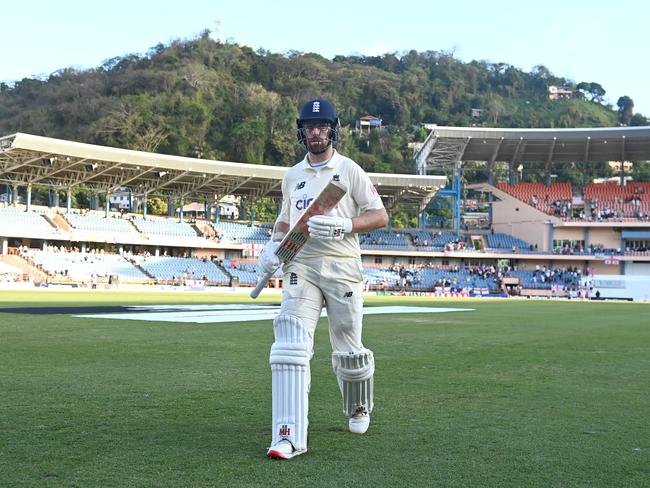
At times, in those early days, it felt like a howl in the dark, although now it is generally accepted that the five-day game and bilateral international cricket is withering in front of our eyes.
It seemed clear to me that the advent of the free market through the rise of franchise cricket, and the popularity of T20, was both a huge opportunity and, unless some careful thought was given to how the game was structured, a threat to the established norms. It needed some foresight, wisdom and planning, all of which have proved to be sadly lacking.
There are obvious analogies to be made. The past 15 years have been like a giant oil rush in cricket, with countries eager not to miss out on the potential riches. The consequence is a kind of sporting resource curse, with the game becoming impoverished (not in a financial sense) as it becomes wealthier.
We don’t see it so clearly in England because Tests are still vibrant here. But in other parts of the world, it is a dying, or dead, game as a live spectator sport. In the Caribbean, for example, Tests are not usually watched in stadiums in any meaningful way – unless England are playing, when the travelling support lends a false look. The same is true in South Africa.

I don’t write about it so much now, partly to avoid being seen as a bore, but also because I think it’s too late. The game has been set on a path from which there is no evident will, from anyone, to divert. The market rules but it is a rigged market in many respects; look, for example, at the advantages the Hundred is given in this country over other formats – with all the game’s energies, focus and marketing, and a window created in school holidays, pushing the franchised competition over its county equivalents. To create an asset to sell to the highest bidders, the most favourable pre-conditions for success must be created.
Now and again, though, a moment arrives which highlights the issue so clearly it cannot escape comment. This month, Cricket South Africa (CSA) indicated that none of its contracted players who will be taking part in its domestic T20 franchised competition will be available for a two-Test tour to New Zealand next February, due to a scheduling clash. South Africa’s contracted players have been told that the domestic tournament has priority.
It means that South Africa will probably be without their Test captain, Temba Bavuma, and a number of other would-be first choice players, such as Aiden Markram and Rassie van der Dussen. It is likely that their entire first-choice bowling attack, comprising Kagiso Rabada, Lungi Ngidi, Marco Jansen, Anrich Nortje and Keshav Maharaj, will also be missing. The draft for the second SAT20 is in late September, after which there will be greater clarity on player availability.
Once upon a time, cricket administrators would make cooing noises about Test cricket being the priority, but they don’t even do that now. I suppose some honesty is to be applauded, at least. The chief executive of CSA, Pholetsi Moseki, told the website ESPN Cricinfo: “Protea players in the SAT20 will not be going to New Zealand and that is a directive from CSA.” This, despite the two-Test series being part of the World Test Championship.
Despite, too, ICC regulations which, as Gideon Haigh and Peter Lalor suggested on the podcast Cricket, Et Cetera recently, brook no argument. The very first regulation in the ICC’s paper on the sanctioning of events and player release states: “International cricket must be given primacy and promoted above all else, because it remains the main showcase of the sport, the ultimate aspiration for young players joining the sport, and the main drive of the public interest and consequent commercial revenues that are the lifeblood of the sport.”

Earlier, Dean Elgar, who was replaced as Test captain by Bavuma in February this year, gave his thoughts on the matter. “It’s tough to take. It shows what the narrative is when it comes to Test cricket, and again it’s the players who suffer,” he said.
“A high percentage of the players still really want to play Test cricket. It’s just extremely sad and clarifies a lot of things when it comes to how Test cricket is viewed by the authorities. We can’t butter our bread on both sides here. What’s the bigger picture? How would New Zealand Cricket, with whom we probably have the strongest relationship of all countries, view us sending a ‘C’ side over there?”
Back in March, following South Africa’s home Test series against West Indies, their leading bowler, Rabada, had this to say: “I see Test cricket as the pinnacle of the game and my teammates in the changing room see it the same way, too. Our next Text is Boxing Day. When you look at [some other nations] they are playing a lot more. It needs to be prioritised a bit more.”

Sympathy lies with Elgar and Rabada, of course. In one respect, though, their comments highlight the only remaining chance for Test cricket to survive in any meaningful way when they imply that a high percentage of players still want to play it. Many young players have forged a T20 path only, but while there are those who want to play five-day cricket, all is not lost.
During the Ashes, I spent a lot of time with Mark Taylor, the former Australia captain. He is a little older than me, but we are essentially contemporaries and both of us watched the Ashes with wonder, excitement and joy. It was a great series and the contrasting strategies and tactics left us enthralled.
Taylor has, like me, been a player and commentator but he has also been an administrator, having sat on the board of Cricket Australia for many years. He has a rounded view of matters from all sides and remains convinced, as I am now, that the only way that Test cricket can prosper is if the players want it to.
Elgar’s comments make it sound as though the players are mere pawns in the game, powerless to do anything in the face of directives from administrators. Players have a voice. They have leverage. They have power. It is their game. If they want Test cricket to survive and prosper, they should do something about it.






For as long as I have been writing in this space – essentially since the advent of the Indian Premier League in 2007 – there have been warnings about the threat to Test and international cricket.